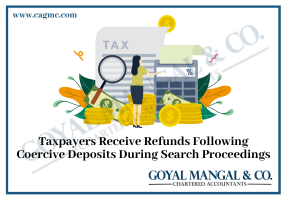
FSSAI (Food Safety and Standards Authority of India) registration is a mandatory requirement for businesses involved in the food sector in India. It is a regulatory measure implemented by the Government of India. It ensures the safety and quality of food products consumed by the public. FSSAI is responsible for setting standards for food products, regulating their manufacture, storage, distribution, sale, and import to ensure they meet the prescribed safety and quality standards. Here is a general overview of the FSSAI Registration Process in Rajasthan and penalties under the FSS Act, 2006.
|
Table of Contents |
Introduction
The registration process requires food businesses to provide necessary documents and information, such as proof of identity, address proof, food safety management system, product details, and supporting documents related to the business. Once the application is submitted and verified, the FSSAI registration certificate is issued to the business, indicating compliance with the food safety standards.
The FSSAI registration process and penalties under the FSS Act, 2006 (Food Safety and Standard Act, 2006) are applicable throughout India, including Rajasthan. However, it’s important to note that specific details and requirements may vary slightly from state to state.
The FSSAI registration process is designed to ensure that food businesses for which food license is required should comply with the regulations and guidelines set by FSSAI. It involves obtaining a unique FSSAI registration or license number, which is a mark of credibility and compliance with food safety standards. The registration is valid for a specific period and needs to be renewed accordingly.
What is FSSAI Registration?
FSSAI registration refers to the process of obtaining a registration or license from the Food Safety and Standards Authority of India (FSSAI). FSSAI is a statutory body under the Ministry of Health and Family Welfare, responsible for ensuring the safety and quality of food products in India. The registration is mandatory for all food businesses operating within the country, including manufacturers, traders, restaurants, food retailers, and online food delivery platforms. It is aimed at regulating and monitoring the food industry to ensure compliance with food safety standards, hygiene practices, and labeling requirements. FSSAI registration helps in building consumer trust, maintaining food safety standards, and promoting the overall health and well-being of the population.
Why is it essential to get FSSAI Registration?
Obtaining FSSAI registration is essential for several reasons:
- Legal Compliance: FSSAI registration is a legal requirement for all food businesses in India. It ensures that the business is operating within the framework of the law and adhering to the necessary regulations and guidelines.
- Food Safety and Quality: FSSAI registration ensures that food businesses maintain proper hygiene, follow good manufacturing practices, and meet the prescribed safety standards. This helps in safeguarding the health and well-being of consumers by reducing the risk of foodborne illnesses.
- Consumer Trust: FSSAI registration demonstrates that a food business is committed to providing safe and quality food products. It helps build trust among consumers, as they can rely on the fact that the food they consume has undergone necessary checks and complies with regulatory standards.
- Business Opportunities: FSSAI registration opens up opportunities for business expansion and collaboration. Many institutions, such as hotels, hospitals, and corporate offices, require food suppliers to be FSSAI registered. It also allows food businesses to participate in tenders and contracts with government agencies, which often mandate FSSAI compliance.
- Product Labeling and Claims: FSSAI registration enables food businesses to make specific claims on their product labels, such as vegetarian, organic, low-fat, or gluten-free, as per the prescribed guidelines. This helps in providing accurate information to consumers and avoiding misleading claims.
Benefits of getting FSSAI Registration
- Consumer Trust: FSSAI registration signifies that the food business complies with food safety and quality standards. It builds consumer trust and confidence in the products or services offered by the business, leading to increased customer loyalty and repeat business.
- Enhanced Market Access: FSSAI registration is often a prerequisite to enter certain markets, including institutional catering, export, and online food delivery platforms. It opens up new business opportunities and expands the market reach of the food business.
- Brand Reputation: FSSAI registration demonstrates a commitment to food safety and quality. It enhances the reputation of the brand and establishes the business as a trustworthy and responsible player in the industry. Positive brand reputation can attract more customers and drive business growth.
- Competitive Advantage: Having FSSAI registration can provide a competitive edge over non-registered food businesses. Many consumers prefer to purchase products from registered food businesses due to the assurance of safety and quality. It helps differentiate the business from its competitors and attract more customers.
- Access to Information and Training: FSSAI provides valuable information, resources, and training programs to registered food businesses. This helps in staying updated with the latest food safety regulations, best practices, and industry trends, thereby improving the overall operations of the business.
- Collaboration Opportunities: FSSAI registration facilitates collaborations and partnerships with other registered food businesses and industry stakeholders. It opens doors for networking, knowledge-sharing, and collective efforts towards ensuring food safety and quality.
FSSAI Registration Process in Rajasthan
The FSSAI registration process in Rajasthan is an essential requirement for businesses involved in the food sector to ensure compliance with food safety standards. Here is a detailed guide to the FSSAI registration process in Rajasthan, encompassing the necessary steps and key aspects:
- Determine the type of FSSAI registration: The first step is to identify the appropriate type of registration based on the scale and nature of your food business. There are three categories:
- Basic Registration: This is applicable to small-scale businesses with an annual turnover of up to Rs. 12 lakhs.
- State Registration: This category is meant for medium-scale businesses with an annual turnover ranging from Rs. 12 lakhs to Rs. 20 crores.
- Central Registration: This is required for large-scale businesses with an annual turnover exceeding Rs. 20 crores or those involved in import-export of food products.
- Application preparation: Gather the necessary documents and information required for the FSSAI registration process. The common documents include:
- Proof for identity: PAN card, Aadhaar card, voter ID, etc.
- Proof of address: Electricity bill, rent agreement, telephone bill, etc.
- Ownership proof of the business premises: Property documents, rental agreement, etc.
- List of food products to be handled or manufactured: Specify the categories and sub-categories of food items.
- Supporting documents related to the business: Partnership deed, incorporation certificate, etc.
- Online application submission: Visit the official FSSAI website and register on the Food Licensing and Registration System (FLRS) portal. Fill in the required details accurately in the application form, including personal information, business details, and food product categories. Upload the scanned copies of all the necessary documents
- Payment of fees: After submitting the application, the prescribed fees for FSSAI registration need to be paid. The fees vary based on the chosen category of registration. The payment can be made online through the FLRS portal using different payment modes such as net banking, credit card, or debit card.
- Inspection and verification: Following the application submission and fee payment, the designated Food and Drug Administration (FDA) or the authority responsible for FSSAI registration in Rajasthan may conduct an inspection of the premises. The purpose of the inspection is to ensure compliance with food safety standards.
During the inspection, the authorities may assess factors such as the cleanliness of the premises, the storage conditions of food products, adherence to good manufacturing practices, and other relevant aspects. They may also request additional documents or information during this process. - Issuance of FSSAI registration certificate: If the application and inspection are found to be in compliance with the requirements, the FSSAI registration certificate will be issued. The certificate contains a unique FSSAI registration or license number that confirms the business’s compliance with food safety standards. The certificate should be prominently displayed at the business premises, and its validity period should be noted.
Penalty under the Act
Failure to register under the FSSAI in Rajasthan or any other state in India can lead to penalties under the FSS Act, 2006. The penalties are imposed to enforce compliance with food safety regulations and ensure the safety and quality of food products. Here are the potential penalties for not registering under the FSS Act, 2006 in Rajasthan:
- Penalty for operating without a license/registration: If a food business is found operating without obtaining the required FSSAI license or registration, a penalty can be imposed. The penalty can range up to Rs. 5 lakhs.
- Penalty for substandard/unsafe food: Selling or manufacturing substandard or unsafe food products is a serious offense. In such cases, penalties can be imposed based on the severity of the violation. The penalty can range from Rs. 1 lakh to Rs. 10 lakhs, depending on factors such as the nature of the violation and the potential risk to public health.
- Penalty for misleading advertisements: False or misleading advertisements related to food products can attract penalties. If a food business is found guilty of such advertisements, a penalty of up to Rs. 10 lakhs can be imposed.
- Penalty for obstruction: Obstructing or failing to cooperate with FSSAI officials during inspections or investigations is considered a violation. A penalty of up to Rs. 2 lakhs can be imposed for obstructing or interfering with the work of FSSAI officials.
- Penalty for repeat offenses: If a food business commits repeat offenses, the penalties can be significantly higher. In addition to monetary penalties, imprisonment can also be imposed based on the severity of the violation and the number of repeated offenses.
Conclusion
In conclusion, the FSSAI registration process in Rajasthan is an important step for businesses involved in the food sector to ensure compliance with food safety standards. By following the registration process, businesses can obtain the necessary FSSAI license or registration, demonstrating their commitment to maintaining food safety and quality.
The process involves determining the appropriate type of registration, preparing the required documents, submitting the application online, paying the prescribed fees, and undergoing inspection and verification. It is essential for businesses to understand and comply with the FSSAI registration process and adhere to food safety regulations to protect public health, maintain consumer trust, and contribute to the overall safety and quality of food products in Rajasthan.







